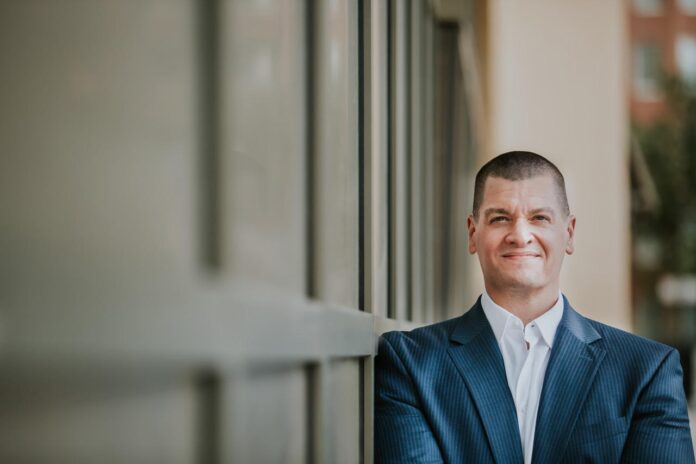“What stares me in the face is the fact that Deaf people face societal and systemic barriers to their own self-determination and success.”
I had the pleasure of interviewing Christopher Soukup, CEO of Communication Service for the Deaf, Inc., a U.S.-based nonprofit with an international focus. Christopher oversaw the development of many new cutting-edge programs and led the virtualization of most of the executive level workforce at the company, allowing him to recruit the best and brightest from anywhere.
Yitzi: Thank you so much for doing this with us! What is your “backstory”?
CSD has been around for longer than I have been alive, so it has always been a part of my life. As a growing boy watching my father at work, I saw the kind of effect he had on others’ lives and decided this was something I wanted to do when I grew up. My mother’s work in education was perhaps even more influential in setting me on my career path, because a lot of what I do is arguably to reeducate the public about Deaf people’s abilities and worth.
Yitzi: Can you tell me about the most interesting projects you are working on now?
The most exciting thing we have going right now is the CSD Social Venture Fund, which is the very first Deaf-centered business startup impact fund. We’re very excited about this upcoming group of companies that we’re supporting. We’re also developing and soon to launch our technology incubator and are exploring entry into providing services for Deaf people in the health care sector.
Yitzi: So tell me a bit more about your organization?
We don’t fit into a single box. On the surface, we’re an advocacy organization trying to convince the world that Deaf people are very much a valuable part of humanity. We’re also a technology-focused company. We didn’t grow from a locally-based program with a home in a broom closet to a multimillion dollar company with an international focus by playing it safe. We pioneered the first statewide telecommunications relay service prior the Americans with Disabilities Act, which mandated that states provide this type of access. We also invested in video relay technology before it was ubiquitous. We’re now developing many technologies that center Deaf people’s needs, but will benefit everyone.
Yitzi: This obviously is not easy work. What drives you?
What stares me in the face is the fact that Deaf people face societal and systemic barriers to their own self-determination and success. But more importantly, I derive so much joy and pride from seeing Deaf people break through and make it on their own terms. It helps me stare back harder.
Yitzi: None of us are able to achieve success without some help along the way. Is there a particular person who you are grateful towards who helped get you to where you are?
There are too many to count. I want to say that all of us need to remember that we are interdependent and not to place too much stock on any one individual “helping” another. We all need each other to help each other.
Yitzi: What do you wish someone told you when you first started and why.
As a leader, be you, not a version of what people think you should be. Be fearless and take risks knowing you will always learn from mistakes and failures. And strive to do things well and with commitment, quality is more important than quantity, especially when it comes to people.
Yitzi: Some of the biggest names in Business, VC funding, Sports, and Entertainment read this column. Is there a person in the world, or in the US whom you would love to have a private breakfast or lunch with, and why? He or she might see just see this. 🙂
I would very much like to sit down with Satya Nadella, the CEO of Microsoft, a company that has proven to be progressive in embracing access, inclusion, and equity among their workforce. Nadella’s oldest child, Zain, has cerebral palsy and, and he has recently begun writing more about how being a parent of a child with a disability has been an integral part of making him a better human and integral to his success.


